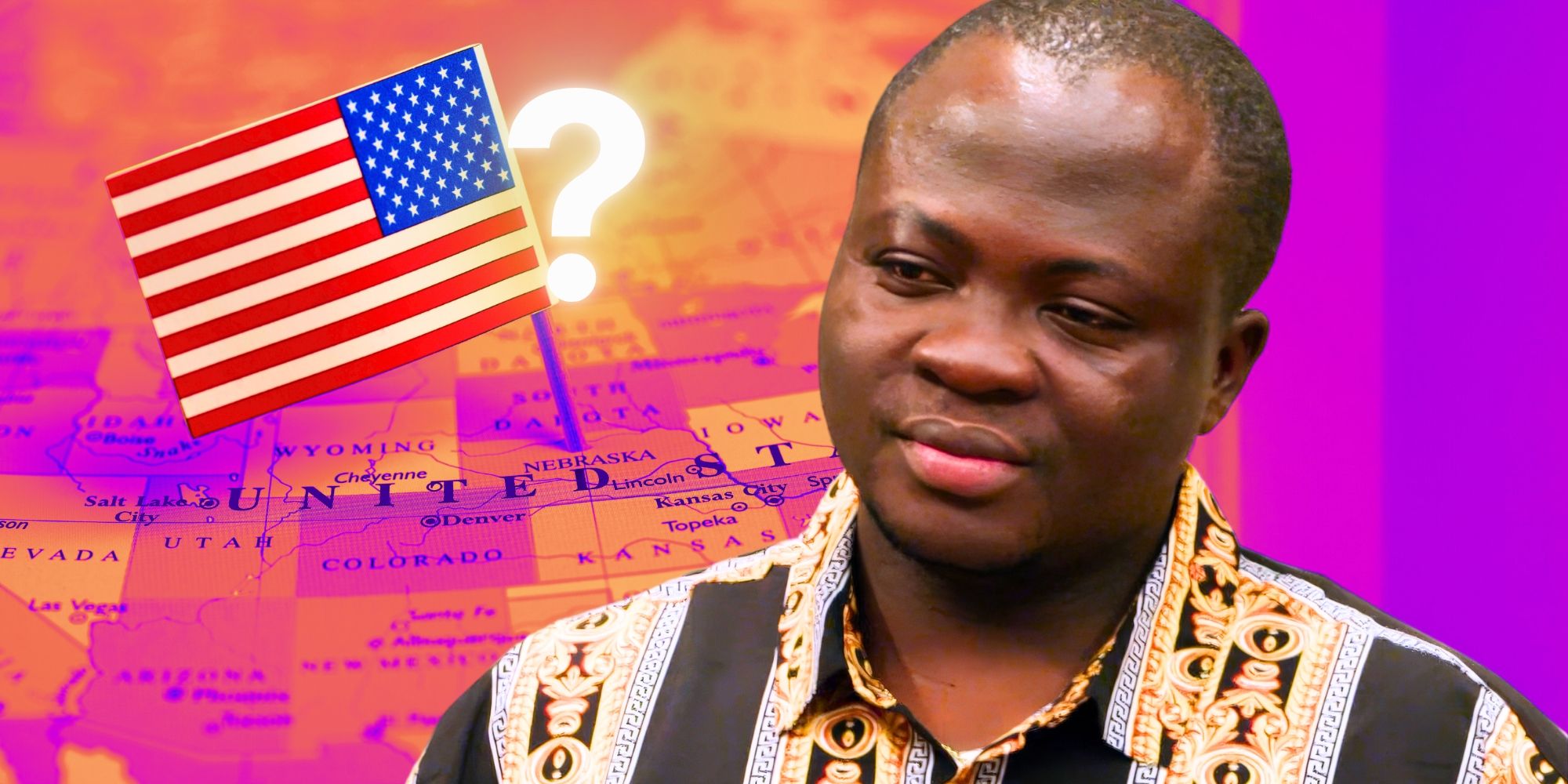Many of us, it seems, have a natural curiosity about the lives of others, especially when details are a bit fuzzy. That, you know, includes questions like, "What happened to Thomas's fiance?" It's a query that pops up quite a bit, suggesting a deep interest in personal stories and perhaps, just a little, the human desire to understand endings and new beginnings.
This kind of question, actually, points to something very real about how we connect with stories, even those we only hear bits and pieces of. We often want to know the full picture, to understand the simple past tense of events that started and ended, as a matter of fact, well before we even heard about them. It's a very human thing to wonder about the people connected to someone we know, or even someone we just hear about.
Yet, the search for an answer to "What happened to Thomas's fiance?" also brings up an important point about private lives in a world that, you know, sometimes feels very public. It's not always easy to find specific details about individuals, especially when their personal moments are not, in fact, shared widely. This piece aims to explore why this question might be so common and what it means when public answers are, sort of, hard to come by.
Table of Contents
- The Quest for Answers: Why We Wonder
- Understanding Privacy in the Digital Age
- Public Figures Versus Private Lives
- The Power of Respecting Boundaries
- What We Don't Know: The Elusive Details of Thomas's Fiance
- Private Details of Thomas's Fiance
- The Language of Speculation: How Questions Spread Online
- Avoiding Misinformation
- The Simple Past: Looking Back at What Might Be
- Finding Peace with the Unknown
- When Information Is Scarce
- The Importance of Empathy
- Frequently Asked Questions About Thomas's Fiance
The Quest for Answers: Why We Wonder
It's genuinely fascinating, isn't it, how certain questions stick with us? The query about Thomas's fiance is, you know, one of those that seems to linger. People are often drawn to stories of relationships, love, and what happens when paths change. There's a sort of natural pull to understand the human experience, and engagements, like any significant life event, are a big part of that. When something like an engagement ends, or its outcome isn't clear, it can spark a lot of interest, almost like a puzzle waiting to be solved.
This curiosity, it's pretty much, rooted in our desire for connection and understanding. We try to piece together narratives, to see how events unfold, and to learn from the experiences of others, even if they are, like, just people we hear about. It's a way we make sense of the world around us, by fitting individual stories into a larger picture of how life, well, just goes. So, wondering about Thomas's fiance is, in a way, just a reflection of our shared human nature.
Sometimes, this interest also comes from a place of empathy. We might imagine ourselves in a similar situation, or we might simply feel a general sense of concern for someone, even a person we don't know personally. It's a subtle reminder that, you know, every person has a story, and sometimes those stories, for various reasons, remain private. The lack of public information can, ironically, make the question even more intriguing, sparking more searches and more discussion.
Understanding Privacy in the Digital Age
In this day and age, where so much information is, like, available at our fingertips, the concept of privacy has become really important, yet also a bit blurry. We often share parts of our lives online, but there's a line, you know, between what's public and what remains deeply personal. When we ask "What happened to Thomas's fiance?", we're sort of bumping up against that line, trying to access details that might not be meant for public consumption.
It's worth considering that not every life event, even those involving people we might know of, is automatically public property. Many individuals, quite naturally, prefer to keep their personal relationships and challenges out of the public eye. This is, in a way, a fundamental right to privacy, allowing people to navigate their lives without constant scrutiny or speculation. So, the absence of an answer isn't always a mystery; it could just be a deliberate choice for privacy.
The internet, as a matter of fact, makes it easier to ask questions, but it doesn't always make it easier to get answers, especially when those answers involve private matters. We might search for details, hoping to find a clear guide to using the information we discover, but sometimes, the most accurate guide is to simply respect that some things are not for public sharing. This respect is, truly, a key part of how we interact responsibly online.
Public Figures Versus Private Lives
There's a pretty big difference, you know, between someone who chooses a public life and someone who lives a more private one. Celebrities or public figures, typically, understand that parts of their personal lives might become topics of public discussion. Their relationships, their breakups, their engagements—these can often become news stories, almost as if they are, like, part of a bigger narrative for everyone to follow.
However, most people, including someone like Thomas or his former fiance, are not public figures. Their lives, basically, are their own. They haven't signed up for public scrutiny, and their personal moments, whether happy or challenging, are usually handled within their own circles. So, when we ask "What happened to Thomas's fiance?", we're often asking about someone who has, quite possibly, no desire for their story to be a public spectacle.
It's important to remember that just because a question exists, it doesn't mean there's a public answer, or that there should be one. The line between public interest and personal privacy is, arguably, very important to maintain. Respecting that line means recognizing that some stories, even compelling ones, belong only to the people who lived them, and that's, really, perfectly fine.
The Power of Respecting Boundaries
Respecting personal boundaries is, you know, a very powerful act, especially in our interconnected world. When we wonder about someone's private life, like Thomas's fiance, it's a good moment to pause and consider if seeking those details truly serves a positive purpose. Sometimes, the most compassionate response is to simply accept that we don't know, and that's okay.
This kind of respect also means avoiding speculation or spreading rumors. As a matter of fact, misinformation can travel really fast online, and it can cause real harm to individuals who are just trying to live their lives. It's like that spelling mistake, 'happend' instead of 'happened'; a small error can, actually, change the whole meaning and lead to misunderstandings. Similarly, incorrect information about someone's personal life can be quite damaging.
Ultimately, giving people space and privacy allows them to heal, to move forward, or to simply live without the pressure of external judgment. It's a way of saying, "Your personal life is yours," and that, basically, is a pretty important message to send. This approach, you know, builds a more empathetic and considerate online environment for everyone.
What We Don't Know: The Elusive Details of Thomas's Fiance
When we look for information about "What happened to Thomas's fiance?", we quickly find that specific details are, well, pretty scarce. This isn't unusual for private individuals. Unlike public figures whose lives are often documented, the personal lives of most people, you know, simply aren't recorded in public databases or news archives. So, the lack of information isn't a sign of a hidden secret, but rather, just a sign of privacy.
The absence of public records means that any answers would likely come from personal connections, if at all. And even then, those details would be shared, if they are, within a trusted circle, not for broader consumption. It's a bit like trying to find out about an idiom's exact origin without a clear reference; you might hear theories, but without a solid source, it's hard to know the full truth.
This situation highlights that not every question has a readily available public answer, and sometimes, the answer is simply that the information is private. It's a reminder that we, like, don't have access to every story, and that's an important boundary to respect. We can wonder, but we must also accept that some parts of life remain, quite naturally, out of public view.
Private Details of Thomas's Fiance
Given the lack of publicly available information regarding Thomas's fiance, any details about their personal life, relationship, or the circumstances surrounding the end of their engagement remain, you know, entirely private. This table, therefore, reflects what is generally not known or shared publicly about this individual.
| Category | Publicly Available Information |
|---|---|
| Name | Not publicly disclosed |
| Background/Biography | No public records or details available |
| Relationship Status (Post-Engagement) | Not publicly known |
| Reason for Engagement Ending | Not publicly disclosed; private matter |
| Current Whereabouts | Not publicly known |
As you can see, the details are, essentially, non-existent in the public sphere. This reinforces the idea that this is a personal matter, and that information about it is not, like, something shared widely. It's a very clear example of how personal lives, for most people, remain just that: personal.
The Language of Speculation: How Questions Spread Online
It's pretty interesting, actually, how questions like "What happened to Thomas's fiance?" can spread across the internet. Someone asks, then others see it, and then, you know, the query gains traction. It's a bit like how internet abbreviations become popular; one person uses it, others pick it up, and soon, it's part of common online talk. This natural spread of questions is, basically, how much of our online conversation works.
However, this rapid sharing also means that speculation can, quite easily, take the place of facts. When there's no official statement or clear information, people often fill in the gaps with guesses or theories. This can lead to rumors that are far from the truth, and that's, you know, a real concern. It's why understanding how to use language correctly, and how to discern reliable information, is so important in online discussions.
We often use words like "still," "already," and "yet" to talk about ongoing or past situations, and these small but mighty words can, really, change the entire meaning of a sentence. Similarly, how we phrase questions and discussions about private lives can, quite literally, shape the narrative, either leading to respectful curiosity or harmful gossip. So, the language we use, and how we understand it, matters a lot.
Avoiding Misinformation
When you're trying to figure out "What happened to Thomas's fiance?", it's, like, super important to be careful about what information you trust. The internet is full of guesses and unverified stories, and it's easy to stumble upon something that sounds convincing but is, you know, completely made up. Think about how a simple spelling mistake, like 'happend' instead of 'happened', can make a text look unprofessional; similarly, inaccurate information can really mislead people.
To avoid falling for misinformation, it's good practice to always look for credible sources. If a piece of information about someone's private life isn't coming from a verified news outlet or a direct, confirmed statement, then, basically, it's probably just a rumor. It's about being a bit critical, you know, of what you read and hear online. Just and only are two words commonly used in English, and they highlight precision; in the same way, we need precision when seeking facts.
Remember, the goal should always be to understand what happened, not to create a story where there isn't one. If you can't find clear, reliable answers, then the most accurate information is, perhaps, that the details are private. This approach helps to prevent the spread of harmful or untrue narratives, and that's, really, a pretty good thing for everyone involved. For more on checking facts, you could visit a site like Snopes.
The Simple Past: Looking Back at What Might Be
When we ask "What happened to Thomas's fiance?", we are, you know, using the simple past tense. This tense is used to talk about actions and events that both started and ended in the past. We're looking back, trying to understand a completed event, even if the details are, in a way, unknown to us. It's a very natural human tendency to try and complete the story, to fill in the blanks of something that has, basically, already occurred.
However, when the events are private, like the end of an engagement, the simple past remains just that—past—but its details are not publicly accessible. We can't, like, message them to understand what happened and agree on a new date and time for a conversation, because that's not how private lives work. The event happened, it's over, but the story isn't ours to know or tell. This can be a bit frustrating for our curious minds, but it's, in a way, part of respecting privacy.
Understanding the simple past in this context means acknowledging that some stories are simply concluded without a public announcement. The actions and events, as a matter of fact, started and ended in the past for Thomas and his fiance, and that's all we can really say with certainty. This acceptance is, pretty much, a key part of navigating questions about private individuals.
Finding Peace with the Unknown
Sometimes, the most satisfying answer to a question like "What happened to Thomas's fiance?" is, you know, accepting that the information isn't publicly available. It can be challenging for our minds, which naturally seek closure and understanding, but finding peace with the unknown is, actually, a valuable skill. Not every story has a public ending, and that's, really, okay.
This acceptance also involves letting go of the need to know every detail about everyone. It allows us to focus on our own lives and stories, rather than getting caught up in speculation about others. It's a way of practicing a bit of mindfulness, you know, about what we consume and what we choose to pursue online. We can learn more about respecting privacy on our site, and gain further insights here.
Ultimately, respecting privacy and finding peace with the unknown can make the online world a more considerate and less intrusive place for everyone. It's a small but significant way we can contribute to a more positive digital environment, where personal boundaries are, basically, valued. This approach, you know, makes for a more empathetic community overall.
Frequently Asked Questions About Thomas's Fiance
Here are some common questions people often ask when searching for information about Thomas's fiance, along with insights based on the typical availability of private details.
Why is there no public information about Thomas's fiance?
There's, you know, generally no public information about Thomas's fiance because they are likely a private individual, not a public figure. Their personal life, including their engagement and its outcome, is not something that would typically be shared widely or reported by news outlets. This is, basically, a common situation for most people who value their privacy.
Is Thomas's fiance a real person, or is this a fictional story?
Without specific context, it's, you know, impossible to say definitively if "Thomas's fiance" refers to a real person or a character from a story. If it refers to a real person, their details are, as a matter of fact, private. If it's a fictional character, the details would be found within the specific narrative they belong to. The question itself often arises from curiosity about a perceived real-life event.
How can I find out what happened to Thomas's fiance?
For private individuals, it's, you know, very difficult to find out what happened without a direct, personal connection. Public records or news sources typically won't have this kind of information. The most respectful approach is to understand that such details are, basically, personal and may not be shared publicly. Seeking out private information about someone without their consent is, pretty much, not advisable.



